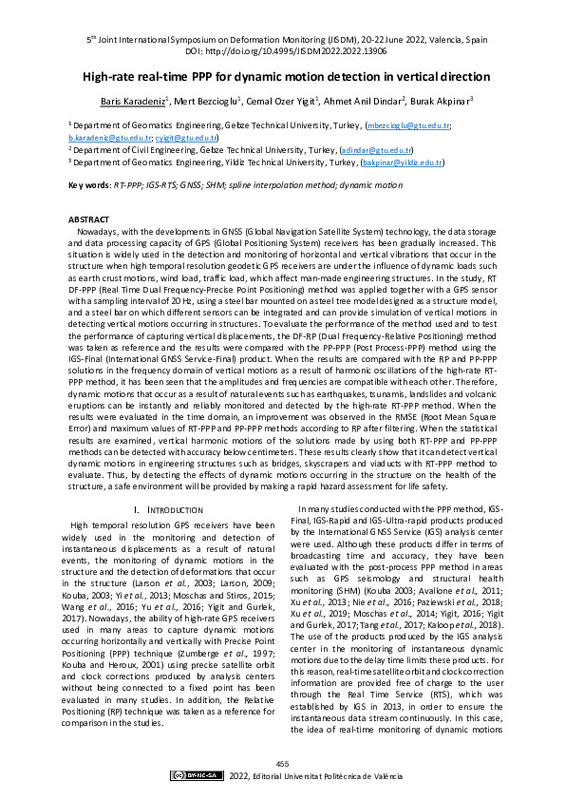JavaScript is disabled for your browser. Some features of this site may not work without it.
Buscar en RiuNet
Listar
Mi cuenta
Estadísticas
Ayuda RiuNet
Admin. UPV
High-rate real-time PPP for dynamic motion detection in vertical direction
Mostrar el registro completo del ítem
Karadeniz, B.; Bezcioglu, M.; Yigit, CO.; Dindar, AA.; Akpinar, B. (2023). High-rate real-time PPP for dynamic motion detection in vertical direction. En 5th Joint International Symposium on Deformation Monitoring (JISDM 2022). Editorial Universitat Politècnica de València. 455-460. https://doi.org/10.4995/JISDM2022.2022.13906
Por favor, use este identificador para citar o enlazar este ítem: http://hdl.handle.net/10251/192112
Ficheros en el ítem
Metadatos del ítem
| Título: | High-rate real-time PPP for dynamic motion detection in vertical direction | |
| Autor: | Yigit, Cemal Ozer Dindar, Ahmet Anil Akpinar, Burak | |
| Fecha difusión: |
|
|
| Resumen: |
[EN] Nowadays, with the developments in GNSS (Global Navigation Satellite System) technology, the data storage and data processing capacity of GPS (Global Positioning System) receivers has been gradually increased. This ...[+]
|
|
| Palabras clave: |
|
|
| Derechos de uso: | Reconocimiento - No comercial - Compartir igual (by-nc-sa) | |
| ISBN: |
|
|
| Fuente: |
|
|
| DOI: |
|
|
| Editorial: |
|
|
| Versión del editor: | http://ocs.editorial.upv.es/index.php/JISDM/JISDM2022/paper/view/13906 | |
| Título del congreso: |
|
|
| Lugar del congreso: |
|
|
| Fecha congreso: |
|
|
| Tipo: |
|









